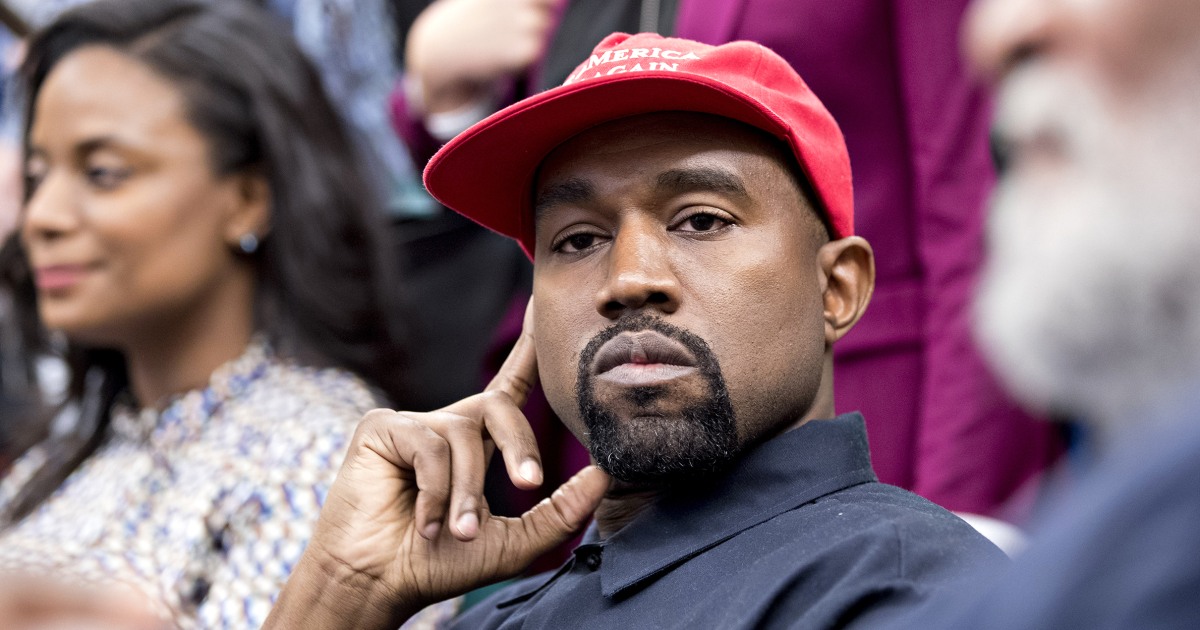When news broke that former President Donald Trump had dinner with antisemites Ye and Nick Fuentes last month, I wondered whether potatoes were on the menu.
Imprisoned as a child in the Bergen-Belsen concentration camp during the Holocaust, my grandmother developed a strategy: Though quite literally starving, she would position herself at the back of the line for food. Waiting until the end, she once explained to me, increased her chances of getting a few pieces of potato in her bowl rather than just liquid, because they’d sink to the bottom of the vat from which the soup was served. Meager as it was, a few bites of potato could be the difference between life and death.
Antisemitic incidents are now so rampant that we have had to postpone planned lessons on the history of the Holocaust to focus on the present.
Adolf Hitler and his Nazis took many things from my grandmother: her parents, most of her siblings, many friends and her childhood. But they couldn’t take her instinct for survival. She was too strong. She made it out alive.
“I love Jewish people, but I also love Nazis,” Ye, the rapper formerly known as Kanye West, proclaimed Thursday on right-wing conspiracy theorist Alex Jones’ show, perhaps emboldened by his dinner with Trump and Fuentes. “I see good things about Hitler, also.” He then took to Twitter and posted a swastika before being banned from the platform on Friday.
I find myself returning to my grandmother’s story as Ye continues to praise the monsters behind the Holocaust, and antisemitism more broadly makes a frightful resurgence in America. True, antisemitism dates back thousands of years. True, the Nazis came so close to exterminating the entire Jewish population that the world had to invent a new word, genocide, for what Winston Churchill called “a crime without a name.” True, antisemitic attacks in the United States reached an all-time high in 2021. True, a former and possible future president broke bread with prominent antisemites a few days ago.
But here is another truth: Adherents of antisemitism have never achieved their ultimate goal. Throughout history, our will to live has outlasted their futile attempts to destroy.
It’s a will that has triumphed because we have summoned it day after day. For my grandparents and their compatriots, Holocaust survival did not end at liberation; it began there. The trauma it imposed was ever-present. The feeling of loss never dissipated. But they picked up the pieces of their shattered existence and, to the extent possible, put their lives back together.
My grandmother met my grandfather — a fellow Holocaust survivor who was liberated from Buchenwald after spending most of the war undergoing forced labor at a munitions factory — at a camp erected for displaced persons in Belgium following World War II. They came to America with little family and no money, never having set foot on the other side of the Atlantic and speaking not a word of English.
Over 58 years of marriage, they raised a son, built their own dry-cleaning business, saved enough for a summer home and traveled widely. They doted on their three grandchildren. They made friends and built a community.
Their lives were defined in large part by the Holocaust. But by surviving each day of its aftermath, they continued to refute Hitler’s master plan by also experiencing happiness and joy, finding meaning and purpose, and giving love while receiving it in return.
To honor my grandparents’ legacy, I teach a seventh-grade Holocaust class at my local Hebrew school. Each year, I remind my students that, while the Holocaust happened several decades ago, the antisemitism that fueled the Nazis’ rise to power is very much with us today. Lately, it has become all too easy to make that point. In fact, antisemitic incidents are now so rampant that we have had to postpone planned lessons on the history of the Holocaust to focus on the present.
A few weeks ago, we spent most of one class reading through the Anti-Defamation League’s real-time tracker of anti-Semitic vandalism, harassment and assault. It is not an easy read, especially when some of these incidents are happening right in our backyard — including one case in November of swastikas and hangmen spray-painted just a few minutes away from our synagogue. Afterward, I posed the same question to each of my students: What will you do in the face of all these attacks on our people?
Their answers would have made my grandparents proud.
“Teach my family and friends what I’ve learned.”
“Speak up when I hear someone say something bad about us.”
“Be a good person.”
At that moment, they joined the ranks of the survivors like Frieda and Morris Zimmerman who had come before them. Though the room was quiet, if you listened hard enough, you could hear the crashing sound of antisemitism going down to defeat once more.
Share your story or advertise with us: Whatsapp: +2347068606071 Email: info@newspotng.com

















